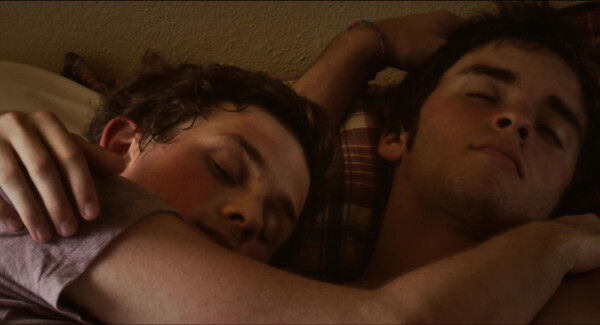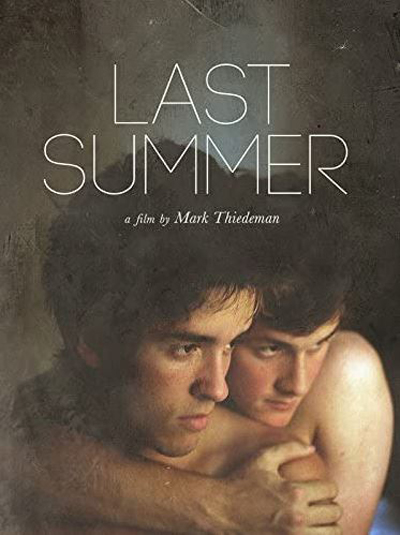Del reviews ‘Last Summer’

Image courtesy of Queer Culture Cinema.
—
“Last Summer” Starring Samuel Pettit, Sean Rose. Directed by Mark Thiedeman. 1 hour, 13 minutes. Rated TV-13. Streaming on Vudu.
Del’s take
Director Mark Thiedeman’s tone poem about two high school lovers, bound together over the course of their short timeline and doomed to inevitable separation, wanders somewhere between touching and maudlin before seeping through its layers of its meaning to reach a final, love-torn conclusion.
Told through a series of loosely connected and artistically crafted images, “Last Summer” articulates the final, dying weeks of the relationship between Luke (Samuel Pettit), and Jonah (Sean Rose), who are nearing the end of their high school days and headed on different trajectories in life. Luke is a “slow learner” who struggles with schoolwork and will never leave their rural Arkansas town, while Jonah is a “gifted” student who fails at prep sports but succeeds at everything else.

The two have been together since they were 4 years old, Luke’s mother having passed when he was a child and Jonah having been adopted by his parents – both sets of circumstances functioning as archetypes for the boys themselves, Luke as the hometown boy struggling with limitations of family and book smarts, and Jonah as the outsider who was always destined to become an outsider again. Now, the two are going separate ways and nobody knows if their love will survive.
The movie is not about homosexuality; in fact, both boys’ families and the community at large seem to accept and encourage their relationship with no judgment passed. The larger imperative is the tragedy of departure and love lost. Jonah tells Luke to ask him not to leave but Luke, who understands Jonah could never be satisfied with the limitations of small town life, refuses to make that gesture, and Jonah refuses to remain despite his obvious affection for Luke.
The pacing of “Last Summer” is languid to the point of glacial, which must be the point. But it all comes across as at least a little pretentious, with Thiedeman’s lingering close-ups of plaster patterns, or a spider web decorated with dew, framed against Schubert piano solos. That, and the lack of narrative, or even dialogue, make for a solemn, sleepy communiqué about lives diverging and the cooling of ardor that had once been so strong.
Thiedeman’s vision is stylish and poetic, but viewers hoping for an actual story will not find that here. “Last Summer” is more about a mood, and in this case, the mood is sadness.
I grade this movie a B-.
Del Stone Jr. is a former journalist and author.
![]()
Leave a Reply